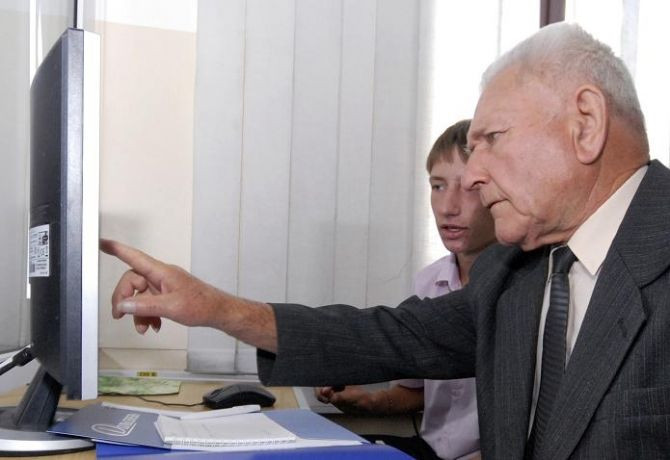Online Test May Diagnose Early Stages of Alzheimer's Disease

When most people think of online quizzes, they think of frivolous questionnaires that seek to find out "Which Real Housewife are you?" or "Name this belly button". However, a study which will be published in the journal PLoS One found that online questionnaires could be used for more serious matters - like the diagnosis of Alzheimer's disease in its earliest stages.
Study coordinator Lizzie Coulson, from the University of Queensland, looked first at mice affected with a model of Alzheimer's disease. Researchers wanted to inspect the cholinergic basal forebrain, which has been linked to memory and attention, to see if loss of function in that particular brain area is responsible for the cognitive disorders characteristic of Alzheimer's disease.
Interestingly, mice who suffered impairment in this region of the brain continued to perform well during cognitive tasks. However, it was in recall navigation that the mice displayed the most trouble - often seen by loved ones of human Alzheimer's patients when they forget how to return home. The reason that recall navigation suffered, Coulson said, was that the ability relies heavily on cholinergic neurons, which are ravaged by Alzheimer's disease.
"By asking patients to perform these navigation tasks, doctors may be able to detect symptoms of Alzheimer's disease much sooner and more cheaply than the MRI tests," Coulson said in a statement. "We envision this test could also help to identify patients who would benefit from early administration of current Alzheimer's disease treatments."
Diagnosis of Alzheimer's disease while it is still early is considered the ideal for physicians. That is because current methods for treatment work best at easing the symptoms of the disorder when the cells are relatively healthy. Of course, the problem is that the early stages of Alzheimer's disease can be hard for doctors to catch.
Currently, Coulson and a team of Czech researchers are in the midst of replicating their findings in humans. The study asks volunteers, some of whom attached to a brain MRI, to simply navigate an arena using a computer touch screen.
Coulson said that the computer tool could be released as early as 2015. While she says that the tool will be performed in a clinic, in the future the test could even be performed on a patient's home computer.



























